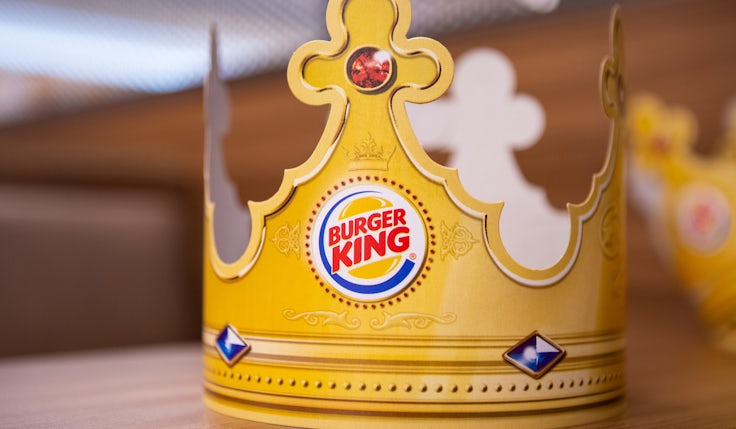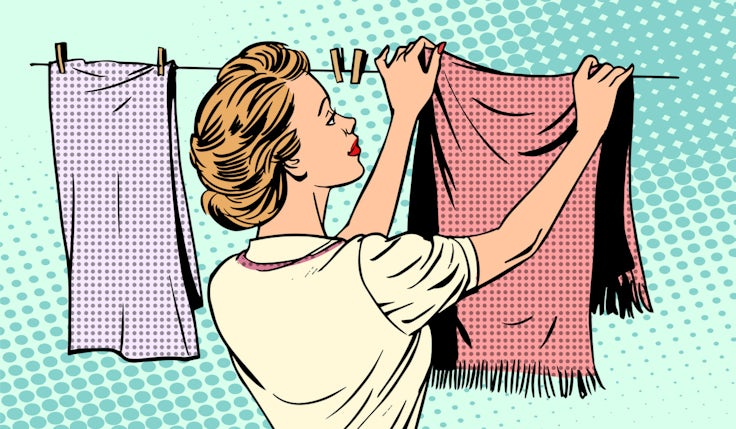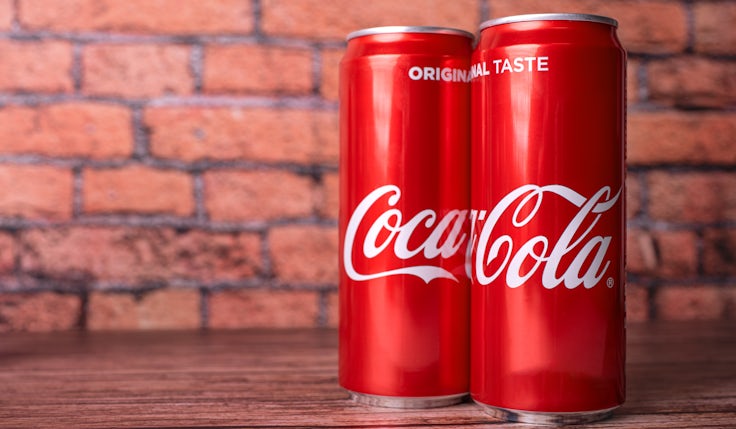As Burger King’s IWD ad proves, it’s time to take action on inclusion
Burger King’s woefully misjudged International Women’s Day ad has rightly received plenty of flak, but how did it even make it past the discussion stage?
 Every year, for a few years now, I have written and published something which has popularly become known as “The Manifesto”. It is, in short, a recap of my thoughts on the state of strategy at the time of writing – what some would call introspection and others navel-gazing. Either way, this year it became something slightly different.
Every year, for a few years now, I have written and published something which has popularly become known as “The Manifesto”. It is, in short, a recap of my thoughts on the state of strategy at the time of writing – what some would call introspection and others navel-gazing. Either way, this year it became something slightly different.
Not only does the 2021 edition carry my name for the first time, it has also evolved from a 7-page summary to a 70+ page polemic against central premises in traditional strategic discourse. As it turns out, the world of business sits atop a number of believed to be strong theoretical foundations that, upon closer inspection, are revealed to be anything but. Not addressing the issues, I felt, would have been a surrender of intellectual integrity.
Given that people in general are not comfortable being challenged, and those who stand to lose stature even less so, yours truly is likely to soon become a very public persona non grata.
So, much like one rips off a Band-Aid, I thought I might speed up the process. Thus, as a white, 40-year-old man, I am now going to voice my opinion about inclusivity and gender issues in marketing.
Oh, I know. The sound of coffees being choked upon, teacups being dropped, pitchforks being sharpened and terrified cries of children being stowed away for safety is already starting to become deafening.
I admit it is likely for good reason; men have a catastrophically poor record when it comes to gender discussions. This could quite easily turn into the equivalent of removing the aforementioned Band-Aid with a chainsaw. Yet not writing what I am about to write would be, I feel, a surrender of moral integrity.
The idea to risk committing column inch hara-kiri first struck me as I watched the Biden inauguration ceremony together with my mother, a no-nonsense feminist with the kind of female gravitas that could silence a drunken football stadium with a mere look.
Equality is treated as an à la carte menu from which to pick the morsels most appealing
“Kamala Harris is a woman, yes, and one of colour,” she began in between sips of coffee so strong it would have made more sense to serve it with a knife than a spoon. “But clearly also a person in her own right. Surely, she has not gotten to this point on gender and race alone? So why is it all that everyone is talking about?”
Her point was that commentators – men and women alike – were reducing Harris to “the first female vice president”. While having a woman in the role is a massive step in the right direction (albeit one that took far too long to happen), the persistent conversation about her gender was, by itself, evidence that we have not gotten as far as we like to convince ourselves to believe.
Marketing has a similar affinity for the self-congratulatory when it comes to matters of inclusion. Leaders of agencies and marketing departments alike love few things more (besides perhaps receiving well-publicised solipsistic awards) than to highlight those who have made it against all odds. But precious fuck-all is done to improve the odds of others like them making it.
Equality is instead treated as an à la carte menu from which to pick the morsels most appealing.
An industry still run by white men
We highlight diversity in our campaigns, but most creative leads are still white men. We talk about the importance of inclusion in our keynotes, but conferences still feature far fewer female speakers than male. We write about the brilliance of women in marketing, but top marketer lists are often dominated by men.
We speak of how woke we are, then celebrate International Women’s Day by running a campaign proclaiming that women belong in the kitchen.
Such was the case of Burger King, of course, which was widely and deservedly criticised on social media for the content in question, before eventually coming to their senses and removing it. Yet many marketers appeared to miss the lesson.
The story of the fast-food company’s failure is not one of a misfire in isolation. Rather, what one must understand is this: such a campaign, for such a brand, on such a day, does not go out without a fair few people having given it their blessings. And it still did.
Yes, I understand that the idea was to play on a shitty (male) joke while promoting scholarships for women seeking to advance in the culinary world. But it failed to grasp a female reality that should have been entirely obvious: when one spends a lifetime surrounded by misogyny, as Claire Strickett commented, “it was just a joke” simply will not do.

And yes, I understand that it is a difficult conversation. It is one thing to highlight the problematic, an altogether different thing to provide the constructive. But attempts in marketing, particularly those made by men, too often end up enforcing outdated beliefs.
Crucially – and I cannot emphasise this enough – this is not to say that men should not speak up, on the contrary. If men fail to call out the behavior of other men, progress will be little different to inertia. But speaking on others’ behalf cannot be allowed to morph into speaking over or down to them. We must understand that there is, to paraphrase Laura Jordan, a critical difference between allyship and paternal help.
The uncomfortable truth for such a supposedly progressive industry is this: most marketing speak about equality still has far less to do with actual change and far more to do with keeping up appearances – while maintaining the convenient status quo. It is virtue signaling in the very worst sense of the word; a veneer of vanity, no more or less than a façade. Self-evident soundbites over course-altering action.
“If she can do it, so can you,” one marketing outlet wrote about the madame vice president. It was, naturally, meant a message of encouragement. After all, one cannot be what one cannot see, as Marian Wright Edelman once said. And I, as a white, middle-class man from a relatively egalitarian country in northern Europe, would not be able to fully appreciate the importance of the moment even if I tried.
Almost two-thirds of female marketers considered quitting due to Covid
But I must recognise that, as astonishing as Ms Harris’ accomplishments are on their own merits, she made it despite the system, not because of it. Inspiration may provide numbers, but if the obstacles facing women are not removed, the numbers will still largely consist of those not allowed to overcome them.
Or to put it differently, focusing on individual achievement cannot come at the cost of blurring out systemic and structural change.
I suppose it would be naïve to believe that marketing could lead the charge, given our penchant for hashtag feminism whenever a journalist sends an email or an award is up for grabs. But if we are to continue to lecture others about equality and inclusivity, as marketers so often do, it would be a much better look if we at least tried to live up to the same standards ourselves.
In fact, much like in the case of the newly appointed American VP, I would say it is long overdue. Maybe we could even turn it into an industry manifesto of sorts.
I would be more than willing to give up the name.
JP Castlin is a former consultancy executive turned independent strategy and complexity management consultant







